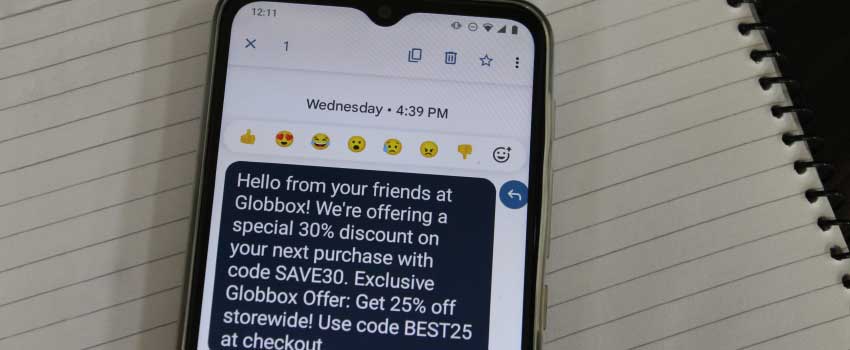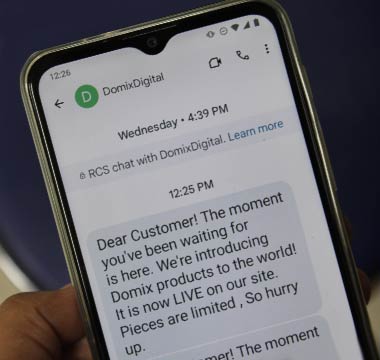
Best Practices for Mobile Marketing
-
Optimize for Mobile
The first and most important best practice for mobile marketing is to optimize your website and marketing campaigns for mobile devices. This means ensuring that your website is mobile-responsive, meaning it can adapt to different screen sizes and load quickly on mobile devices. It also means ensuring that your marketing campaigns, such as email marketing and social media marketing, are optimized for mobile devices.
-
Use SMS Marketing
SMS marketing is a highly effective way to reach customers directly on their mobile phones. By sending personalized messages, businesses can create a more engaging experience for their customers. SMS messages also have a higher open rate compared to other forms of marketing, making them a highly effective tool for businesses that want to reach their customers quickly and efficiently.
-
Use Social Media Marketing
Social media marketing is a powerful way to reach customers on their mobile devices. By creating engaging social media content and promotions, businesses can reach a wider audience and build brand awareness. Social media platforms such as Facebook, Instagram, and Twitter also provide businesses with valuable data about their customers, which can be used to improve marketing efforts.
-
Use Location-Based Marketing
Location-based marketing is a powerful way to reach customers when they are near your business or in a specific location. By using geolocation technology, businesses can send targeted messages and promotions to customers based on their location. This can help increase foot traffic and drive sales.
-
Use Mobile Apps
Mobile apps are a great way to engage with customers and promote your products or services. By creating a mobile app, businesses can provide a more personalized experience for their customers and keep them engaged with their brand. Mobile apps also provide businesses with valuable data about their customers, which can be used to improve products and services.
-
Use Mobile-Friendly Content
When creating content for mobile marketing campaigns, it’s important to ensure that it is mobile-friendly. This means using short and concise messaging, easy-to-read fonts, and clear calls to action. Mobile users are often on-the-go and have limited attention spans, so it’s important to create content that is easy to consume and engaging.
-
Use Mobile Payment Options
Mobile payment options such as mobile wallets and mobile payment apps are becoming increasingly popular among consumers. By offering mobile payment options, businesses can provide a more convenient and seamless checkout experience for their customers. This can help increase sales and improve customer satisfaction.
-
Provide Personalized Experiences
Personalization is key to successful mobile marketing. By providing personalized experiences for customers, businesses can create a more engaging and memorable experience. This can be achieved through targeted messaging, personalized recommendations, and personalized promotions.
-
Measure and Analyze Results
Finally, it’s important to measure and analyze the results of your mobile marketing campaigns. This can help you identify what’s working and what’s not, and make improvements accordingly. By tracking key performance indicators such as click-through rates, open rates, and conversion rates, businesses can optimize their mobile marketing efforts and improve ROI.
Measure The Success of Mobile Marketing Campaign
Measuring the success of a mobile marketing campaign is essential for businesses to determine the effectiveness of their marketing efforts and optimize their strategies for future campaigns. In this article, we will discuss the key metrics and methods for measuring the success of a mobile marketing campaign.

-
Define Goals and KPIs
The first step in measuring the success of a mobile marketing campaign is to define clear goals and key performance indicators (KPIs). Goals may include increasing sales, boosting brand awareness, generating leads, or driving website traffic. KPIs may include metrics such as click-through rate, conversion rate, engagement rate, app downloads, or social media followers. Defining clear goals and KPIs will help you track your progress and measure the success of your campaign.
-
Use Analytics Tools
To measure the success of a mobile marketing campaign, businesses should use analytics tools to track and analyze data. Google Analytics is a popular tool that can provide insights into website traffic, user behavior, and conversions. Social media platforms such as Facebook and Twitter also offer analytics tools that can track engagement, impressions, and clicks. In addition, mobile app analytics tools such as App Annie and Flurry can provide data on app downloads, usage, and retention.
-
Measure Engagement
Engagement is a key metric for measuring the success of a mobile marketing campaign. This can include metrics such as likes, comments, shares, and retweets on social media, or time spent on a website or app. By measuring engagement, businesses can determine the level of interest and interaction from their target audience.
-
Track Conversions
Conversions are another important metric for measuring the success of a mobile marketing campaign. This can include metrics such as form submissions, app downloads, or purchases made on a website or app. By tracking conversions, businesses can determine the effectiveness of their marketing campaigns in driving desired actions from their target audience.
-
Monitor Click-Through Rates
Click-through rates (CTRs) are a key metric for measuring the success of mobile advertising campaigns. CTRs measure the number of clicks on an ad compared to the number of impressions it receives. By monitoring CTRs, businesses can determine the effectiveness of their ad copy and creative in driving engagement and clicks from their target audience.
-
Evaluate Return on Investment
Measuring the return on investment (ROI) is another important metric for measuring the success of a mobile marketing campaign. This can include metrics such as the cost per click, cost per acquisition, or revenue generated from a campaign. By evaluating the ROI of a campaign, businesses can determine the profitability and effectiveness of their marketing efforts.
-
Test and Optimize
Testing and optimizing campaigns is an ongoing process that can help businesses improve the success of their mobile marketing efforts. A/B testing can help businesses determine which elements of their campaign are most effective in driving engagement and conversions. By making incremental changes based on test results, businesses can optimize their campaigns for greater success.
Measuring the success of a mobile marketing campaign requires clear goals and KPIs, the use of analytics tools, and the monitoring of metrics such as engagement, conversions, CTRs, and ROI. By testing and optimizing campaigns based on data, businesses can continually improve their mobile marketing efforts and achieve greater success. Measuring the success of a mobile marketing campaign is an essential step in maximizing the effectiveness of your marketing efforts and achieving your business goals.